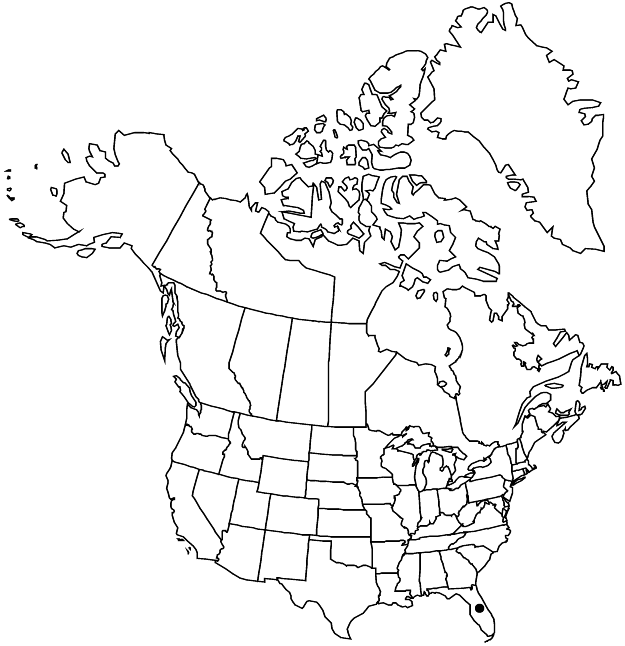Coccoloba diversifolia
Enum. Syst. Pl., 19. 1760.
Plants with branches spreading, to 10(–18) m. Stems: bark light gray, peeling off in short flakes, inner bark light brown; twigs green or grayish green when young, gray or whitish gray at maturity, glabrous or nearly so. Leaves: those of adventitious or juvenile shoots often much larger and of different shape from those of normal shoots; ocrea persistent proximally, deciduous distally, tan or brown, cylindric, 3–5 mm, coriaceous proximally, membranous distally, margins oblique, glabrous or puberulent; petiole 5–15 mm, glabrous or puberulent; blade pale green abaxially, green to dark green adaxially, lanceolate, ovate, obovate, or elliptic, (3–)5–10(–13) × (1–)3–5(–7) cm, length usually 2–3 times width, coriaceous, base acute to obtuse, margins often revolute, apex acuminate to obtuse or blunt, abaxial surface dull, adaxial surface shiny, minutely punctate, glabrous. Inflorescences (1.5–)3–10(–18) cm, glabrous, pistillate spreading or pendent in fruit; peduncle 1–6 cm, glabrous. Pedicels 1–3 mm, glabrous. Flowers: tepals round to broadly elliptic, margins entire, apex obtuse. Staminate flowers 1–3 per ocreate fascicle. Pistillate flowers: tube spherical to obpyriform, 9–14 × 6–10 mm, becoming fleshy. Achenes 6–10 × 6–9 mm, shiny. 2n = 22 (West Indies).
Phenology: Flowering year-round.
Habitat: Sandy coastal hummocks, limestone forests
Elevation: 0-10 m
Distribution

Fla., s Mexico, West Indies, Central America (Belize, Guatemala).
Discussion
The wood of Coccoloba diversifolia has a specific gravity of 0.8 and is strong and brittle (E. L. Little Jr. et al. 1969).
Selected References
None.